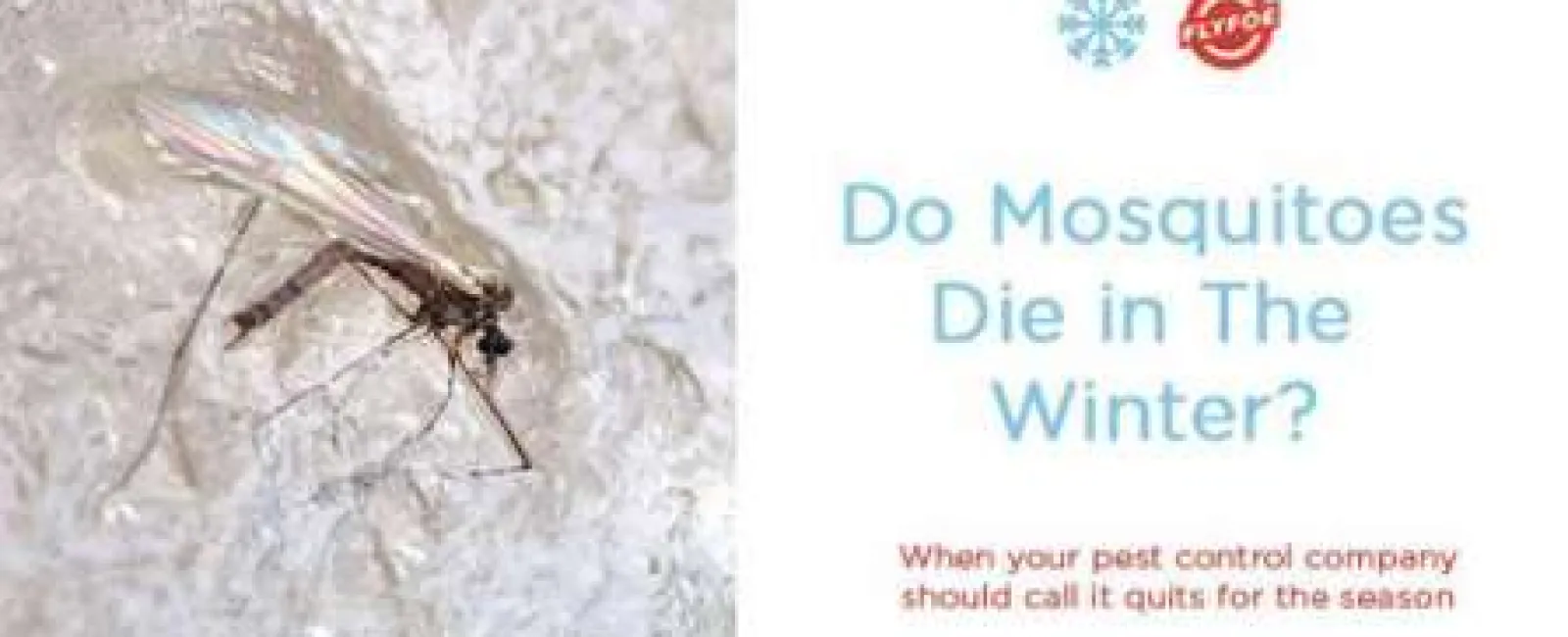Mosquitoes in The Winter
Ah, the hot chocolate is warm, the frost has hit, and the mosquitoes are...dead? A common misconception is that mosquitoes die as soon as the cold weather sets in. The truth is, mosquitoes CAN and DO survive cold weather.
The average life span of a female mosquito (only female mosquitoes bite) is approximately 42-56 days. Females bite to utilize the host's blood to produce eggs. During their lifespan, they will lay upwards of 300 eggs, 100 at a time, only in standing water.
Once temperatures start to drop around 50 degrees Fahrenheit, mosquitoes will lay their final batch of eggs, and live out the remainder of their 42-56 days. Since these pests need water to lay their eggs, the biting and breeding stop when water freezes over.
During the winter, the unhatched eggs will enter a state of diapause. Diapause is a process that halts the development of the mosquito in the egg during the winter season. Then once the temperatures rise in the spring, the eggs complete the diapause phase and re-enter development. Once the eggs hatch, the process begins all over again.
Mosquito & Tick Control and The Seasons
Mosquito & tick control companies, like Patio Patrol, have studied all the in's and out's of the mosquito life cycle. Depending on your location (and the weather) most companies will begin their service in early March. The goal is to eliminate the eggs laid during the previous season and any newly, hatched mosquitoes. Throughout the rest of the season, the goal is to control the adult population and prevent as much breeding as possible.
Based on mosquitoes final breeding cycle and the current climate temperatures, you should expect to see your mosquito & tick control company servicing your yard until the end of October/early November. These final sprays are extremely important in order to set your home up for a mosquito-free yard in the following spring.
Click here to learn more about mosquitoes & ticks or follow us on Facebook and Instagram

